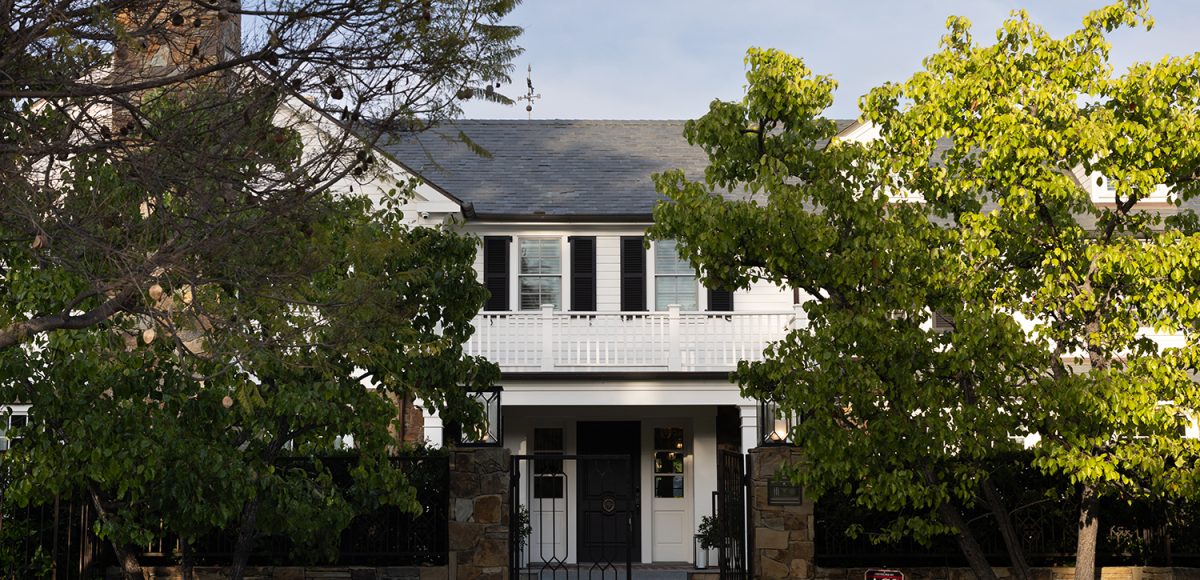A Los Angeles Superior Court judge issued a tentative ruling on March 21 against real estate mogul Robert Barth in favor of his longtime business partner Stanley Black, finding that Barth had pocketed profits from the sale of a Beverly Hills property. The ruling, which has yet to become final, orders Barth to pay $13.4 million in total damages, a verdict that Barth’s attorney vowed to appeal.
The case fractured a business relationship between Black and Barth that stretched back into the 1980s, when the two began investing in real estate together. They practiced an informal kind of commerce built on “handshake deals,” Judge Monica Bachner described in her tentative ruling. In one of their business ventures, “other than the initial formation documents, there were no written agreements, there was never a board of directors meeting, there were no corporate resolutions or minutes.”
The two would speak face-to-face multiple times a day, Bachner wrote.
“Until the fall of 2019, Barth and Black had offices in the same suite, separated by about 20 feet with a shared wall.”
Then, in 2017, Barth arranged the purchase of a handsome 11,000-square-foot Cape Cod home at 840 Greenway Drive through LLCs that he managed and in which Black was a minority stakeholder. The companies paid $17.1 million for the mansion.
The Greenway home soon attracted a tenant, Eric Baker, who leased the property until 2018, when he made an offer to purchase it for $21 million. Barth, acting as the agent for the LLCs, countered with $25 million, which Baker accepted. This would have generated millions in profit for Barth and his business partners, including Black.
But according to court documents, before the sale to Baker, Barth surreptitiously sold the house to himself from the LLCs for $16.9 million, a loss of $100,000. The proceeds of the $25 million transaction, then, went to himself.
“Barth violated his fiduciary duty of loyalty by engaging in self-dealing transactions, misappropriating the LLCs’ Greenway property at far less than its actual value, and then seizing for his own personal gain over $6 million in profits that the LLCs would have obtained from their pending sale agreement with Baker,” Bachner wrote.
The ruling, if made final, would award Black and the other investors $6,692,740 in compensatory damages for the lost profits on the sale of the house and $6,692,740 in punitive damages.
Howard King, an attorney for Black, praised the tentative ruling.
“Following nine trial days of Barth’s attempts to obscure the truth, we are gratified the Judge saw this for what is was, a theft by a fiduciary of his investors’ funds,” he told the Courier. “The unusual award of more than $6 million in punitive damages is confirmation of the outrageousness of Barth’s behavior.”
Robert Klieger, an attorney for Barth, described his client as “disappointed” by the tentative ruling and reiterated his defense that “Mr. Barth intended to purchase the Greenway house as his personal residence from the start.”
Barth only sold the house “[b]ecause the renter’s offer to purchase far exceeded the price Mr. Barth had agreed to pay for Greenway,” Klieger said.
This argument relies on a timeline of events that the court ultimately rejected, finding that Barth had purchased the property only after Baker had agreed to the $25 million price tag, suggesting he had planned to sell the property all along.
Klieger further claimed that Black’s daughter and grandson were the driving force behind the lawsuit, not Black himself.
“Medical records that plaintiffs withheld until just before trial revealed that Mr. Black was already suffering from pronounced dementia at the time of the filing and was almost certainly incapable of directing this lawsuit,” he said. “The Greenway transaction was consistent with numerous transactions that Mr. Barth and Mr. Black have undertaken for the benefit of their investors, and, had Mr. Black been competent to testify, we are confident that he would have been the first to speak out in Mr. Barth’s defense.”
As the case draws closer to a final judgement, Barth and Black will return to court on April 17 in a case involving allegations that Barth stole nearly $2 million from accounts held jointly by himself and Black. The judge in that case is expected to schedule a trial date to take place within the next couple of months.
Before then, Klieger says that he plans to file objections to the tentative ruling on April 5, a step necessary for appealing the filing decision.
“Assuming the tentative order is adopted as is, Mr. Barth does intend to appeal the ruling and is confident that the ruling will be reversed and that his position will be vindicated on appeal,” he said.







